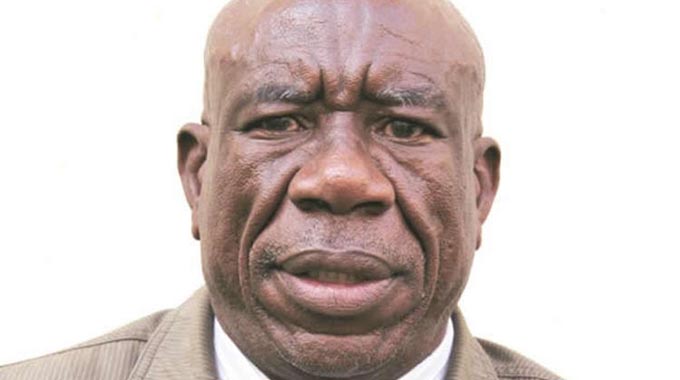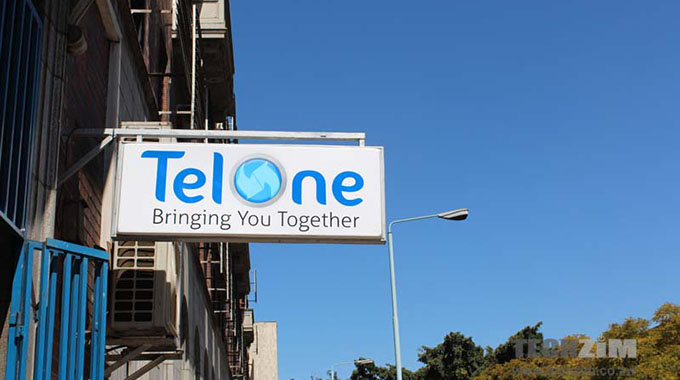ED’s reforms taking shape

Trevor Shiri Correspondent
Zimbabwe is a country that has the misfortune of having a private media bent on deliberately misrepresenting the positive Zimbabwean story with a view to water down the reform trajectory that the New Dispensation under President Mnangagwa has taken.
It is sad and unfortunate.
In normal polities, the media follows the flag in a patriotic manner.
It was sad reading an editorial in one of the local papers titled, “ED shooting self in the foot on sanctions”.
The editorial totally misrepresented and paid a blind eye to the numerous reform initiatives carried out by President Mnangagwa since taking over from his predecessor, Robert Mugabe.
The paper inexplicably claimed that the only reason why illegal sanctions remain is simply because Zimbabwe has not made good on its promise to reform.
The editorial goes further to claim that the humanitarian assistance offered by the United States (US) and European Union (EU) in the wake of the force of nature, Cyclone Idai, was ample proof that the two were willing to help Zimbabwe, only if the country was willing to reform.
There lies the fault line in this argument.
Firstly, it must be borne in mind that the US and EU have always been channelling humanitarian aid to Zimbabwe, through the plethora of humanitarian agencies under the auspices of the United States Agency for International Development (USAID) and the EU Delegation in Zimbabwe.
They have been channelling aid for fighting disease, hunger, gender development, small-scale farming and political civil society activities.
All this humanitarian assistance has always been coming through Non-Governmental Organisations (NGOs) and Civil Society Organisations (CSOs) under the current sanctions regime.
The crux of the matter is that, Zimbabwe, if given the choice, would rather have sanctions lifted and investors allowed to freely invest and trade with Zimbabwe without the threat of economic reprisals under the Office of Foreign Assets and Control (OFAC).
Zimbabwe does not need fish (humanitarian aid), but fishing rods, nets and boats (capital financing and lifting of sanctions) to become self-sufficient.
The mischievous correlation between trinkets of humanitarian aid and love for Zimbabwe is devious.
When the US renewed its illegal sanctions regime in February 2019, it pin-pointed that “Zimbabwe poses an extraordinary threat to the foreign policy of the United States”.
What is this foreign policy that remains under “an extra-ordinary threat” from a Third World, small country such as Zimbabwe to the mighty Uncle Sam?
Is it the alleged lack of reform by Government that will benefit Zimbabweans?
No, stupid! No amount of political and social reform by Zimbabwe will lead to the lifting of sanctions, unless that one single matter is addressed — that one pesky irreversible matter is addressed.
To fully amplify this salient point, President Mnangagwa organised the most peaceful, free and fair election on July 31, 2019, a clear departure from the First Republic.
The well-organised election was only sullied by the undemocratic and violent demonstrations by the MDC-Alliance, after the fact.
The Public Order and Security Act (POSA), which the opposition, together with the US and EU had identified as stifling political freedoms is on its way out.
Cabinet in February 2019, approved the principles for the amendment of the Act in order to align them with the Zimbabwean Constitution, paving the way for the drafting of the actual Bills.
During the same month, Cabinet approved principles for the repeal of the Access to Information and Protection of Privacy Act (AIPPA), which would give rise to three legal instruments — the Access to Information Bill, the Zimbabwe Media Commission Bill and the Protection of Personal Information/Data Protection Bill.
The foregoing process was preceded by consultative meetings held by the Ministry of Information, Publicity and Broadcasting Services, in conjunction with the EU, with all media stakeholders to ensure inclusivity in the reform process. If this is not reform in action, one wonders what is?
Speaking to The Herald’s sister paper, The Sunday Mail on the sidelines of the US’ Women’s History Month commemoration film screening in Harare recently, US Ambassador to Zimbabwe Brian Nichols acknowledged that, “this Government has been working towards reform. I have been impressed and I have always said so . . . I know that the Cabinet has approved the principles for the repeal of POSA (Public Order and Security Act) and has been discussing repeal of AIPPA (Access to Information and Protection of Privacy Act) and those are all very positive things.”
He added that: “I think that there is great urgency both politically and economically to continue down the road of reform as this administration has laid out, and we encourage them to pursue those reforms as well as to address the outstanding recommendations… All of this is very positive and I believe that if this Government pursues them, the international community will respond.”
The real issue lies in the last bit of his statement that, if Zimbabwe continues on the path of reform, the international community would respond positively.
It is a fallacy, because any reform initiative by Zimbabwe is for Zimbabweans, not the US.
The reform process has nothing to do with America’s foreign policy. How does AIPPA for instance poses an extraordinary threat to the US? It does not. It comes back to that one pesky issue that poses an extra-ordinary threat to US foreign policy.
The New Dispensation has not only been undertaking reforms, but has been fostering inclusive politics to move the country forward.
The President initiated the Political Parties Dialogue, where presidents of the various parties present their views and contributions on how the country ought to move.
Relatedly, the President met CSOs in Matabeleland under the banner of the Matabeleland Collective to decisively deal with the Gukurahundi issue, and other pertinent issues affecting the region.
As a show of sincerity, the President, through the Permanent Secretary in the Ministry of Justice, Legal and Parliamentary Affairs, Ms Virginia Mabiza, re-iterated that people should freely talk about the Gukurahundi anywhere, including the media.
Further, he has initiated the process of legal exhumation and reburials of victims of the Gukurahundi, as well as issuance of death certificates and identity documents for their surviving offspring.
All these positive strides somehow escape the editorial in the private paper, yet ironically, it led with the headline, “ED takes action on Gukurahundi . . . as he authorises exhumation, reburial of victims.”
It is, therefore, beyond disputation that reforms are not, and will not be the magic wand that would result in “the extra-ordinary threat,” that Zimbabwe poses to US foreign policy disappearing.
It is the land question, which America euphemistically refers to as “property rights.”
This is the real threat to American policy, as the compulsory acquisition of land deprived its citizens of their “right” to our property as Zimbabweans. It is about “us,” the true owners of the land, and “them,” their kith and kin who lost that which did not belong to them.
Nonetheless, President Mnangagwa has stolen a march on the Americans as he invited former white commercial farmers to apply for land so that they are considered in land allocations like any other Zimbabwean.
Those farmers who applied will be allocated land after the audit, which is currently underway and seek to unlock more land for redistribution.
Further to that, Government has set aside an initial figure of $53 million to compensate former white commercial farmers for developments on the farms, which are private property, not the land which belongs to the State on behalf of the Zimbabwean people.
The ball is firmly in the court of the US and the EU to lift the debilitating sanctions regime as President Mnangagwa is undertaking the reform process, not to please them, but because it is good for Zimbabwe’s democracy.
Simultaneously, he is addressing their grievance on “property rights” by compensating their kith and kin, and has already moved to amend the Indigenisation policy which threatened their right to property and investment.










Comments